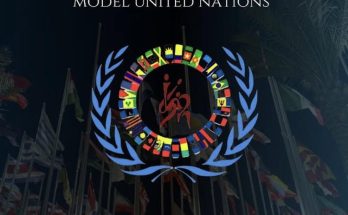The PR invite was catchy. It immediately fuelled the interest. “We have heard the Politicians, we have heard the Generals, we have heard the Media, Now it’s time we listen to our future leaders” – read the invite. Now, who wouldn’t want to listen in, especially when these future leaders happen to be school children from India and Pakistan.
A debate organised by the Debating Society of India and Debating Society of Pakistan in New Delhi’s Siri Fort auditorium turned out to be as captivating as it had promised to be. And this despite that fact that the final team from Lahore’s Salamat International Campus for Advanced Studies (SICAS) arrived two hours late, delayed because of being denied visa at the Wagah border.
Putting aside the weariness and exhaustion of a long painful journey, the SICAS team plunged into an intelligent, well-thought out and eloquent debate with the Indian finalists La Martiniere, Kolkata. Their topic was free trade between the borders. The La Martiniere team lead by Yamir Tainwala argued in favour of free trade, saying that a free trade agreement between the two nations would bring in economic prosperity and normalise relations between the neighbours. This argument was robustly refuted by SICAS’ Azeem Liaquat, who stressed that it would only lead to a rise in unemployment. Admitting that the Pakistan industries lacked an edge over their Indian counterparts, he said that the proposed FTA would only boost economic prosperity in India and benefit the Indian industries.
“The Indian economy is growing at 5 to 7 per cent. Indian companies, which are profit-oriented, would benefit their own countrymen rather than our people. If we import agricultural products from your country, then it would damage us. Therefore, we would have to put them on the negative list,” argued the participants during the debate.
The students from the Lahore school were only giving voice to widespread apprehensions in Pakistan that the FTA, if implemented, will lead to Indian goods inundating the local markets and impede the growth of local Pakistani manufacturers. By putting forth their points cogently and intelligently, the SICAS team managed to impress the audience – comprising school children, parents, media and guests – and judges. In fact, it was clear that their arguments had endeared them to the audience. No wonder, they emerged the winner in a closely contested debate where both the parties argued intelligently and maturely.
It was interesting to note the points put forward – for and against the motion – as these exhibited the students’ maturity and political awareness. Who said that youngsters are not interested in politics or international relations. For sceptics, this cross-border inter-school debate was ample proof of the interest that youngsters take in the political happenings and government policies, more so when it concerns our neighbours. The story is the same across borders.
The Pakistan team may have won the debate on the FTA, but such a scintillating thought fest engaging school students only underlined the need for a Free Thought Area between the two prickly neighbours who are still to get their relations right more than sixty years after uneasy co-existence as independent countries. The relations between the two nuclear-armed countries continue to be burdened by a major image deficit, and it is here that the dialogue between young people across the border can make a big difference. “We’re here to compete, to interact with people and develop relations between the two countries. We need to interact at early stages of our lives and not visit the neighbouring country for the first time when we’re forty,” said Sofyan Sultan, the coach of the Pakistan’s debating team. “These kids will take home relations from here. They’ll make new friends and add them on Facebook. That’s what we need.”
Author Profile
Latest entries
 NewsApril 1, 2019Slovakia’s first female president a symbol of rejection of populism
NewsApril 1, 2019Slovakia’s first female president a symbol of rejection of populism DiplomacyOctober 12, 2018Ahead of Modi visit, Japan to bolster Clean India partnership
DiplomacyOctober 12, 2018Ahead of Modi visit, Japan to bolster Clean India partnership Books / PoetryApril 12, 2013Arab Spring: Is sexual revolution the next in line?
Books / PoetryApril 12, 2013Arab Spring: Is sexual revolution the next in line? CultureApril 6, 2013Cross-border talk: Why FTA won’t work, but Free Thought Area may just click
CultureApril 6, 2013Cross-border talk: Why FTA won’t work, but Free Thought Area may just click







